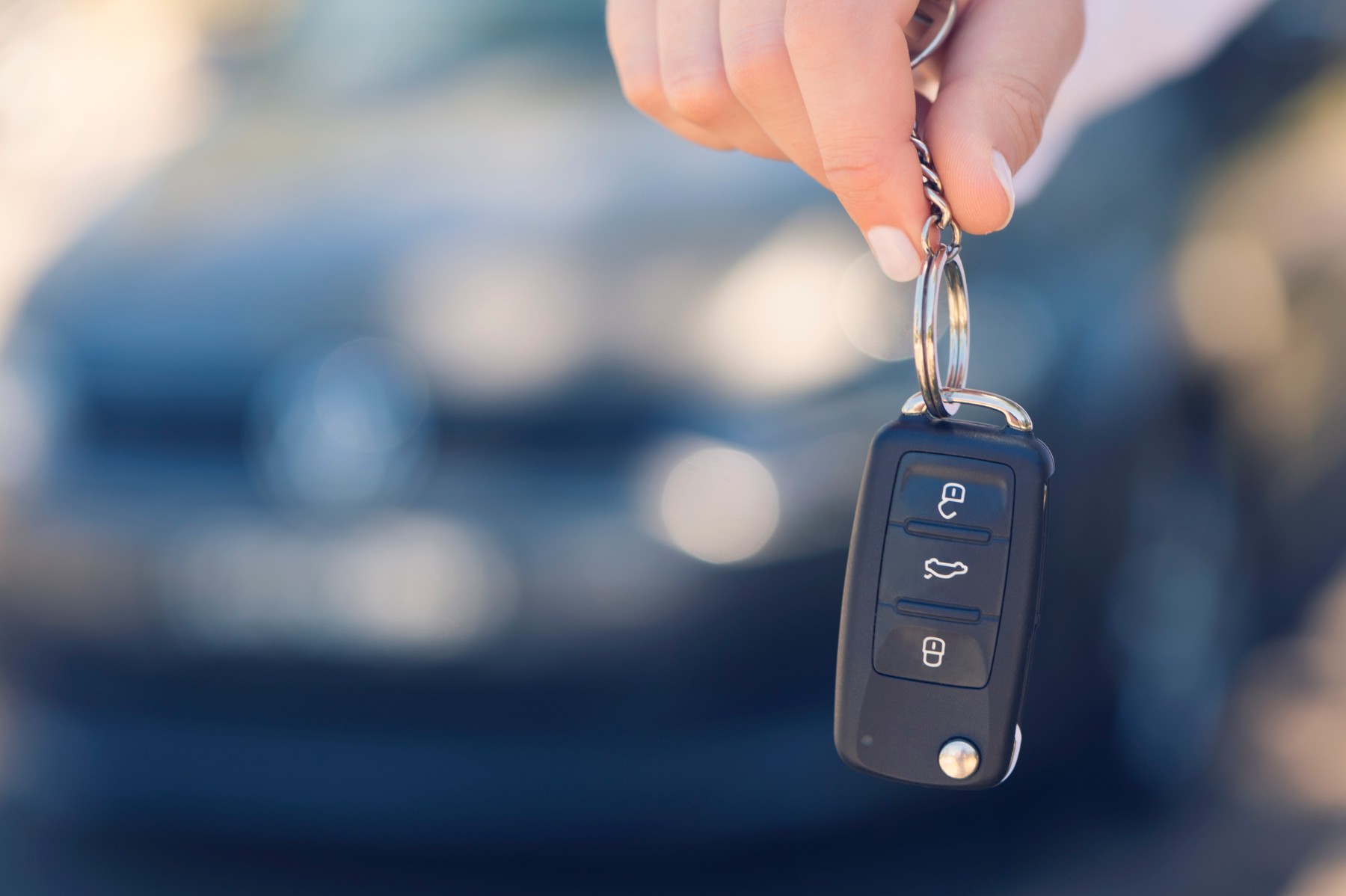It’s no secret that teenagers are a higher liability behind the wheel. Insurance rates are a reflection of the statistics. Drivers age 16 and 17 are more likely to be involved in an accident for many reasons.
- Inexperience leads to slower reaction time and decision making. Years of experience behind the wheel help drivers to make split-second decisions when necessary.
- Teens are more likely to follow closely leading to rear-end collisions.
- Teens are more easily intoxicated by smaller amounts of drugs or alcohol.
Are Parents Liable for Teenage Driver Accidents?
There is no short answer to this question. Vicarious liability is the term used for a parent’s financial responsibility regarding the careless actions of their children. In the past, this law was enforced without question. Since parents supervise their children, they are responsible for their actions. Now, the law is less clear.
There are some situations in which you can be held liable for your teen’s actions behind the wheel. However, your child is still responsible for their own actions. Any licensed driver, no matter what age, is held to the same expectations while driving. On top of the claims against your child, there are certain reasons you may be considered liable as well.
When Parents Are Responsible
In the state of Texas, parents are not automatically responsible for their children’s actions. However, just because you weren’t in the car doesn’t mean you are not liable. Some important conditions may mean you can be charged for your child’s car accident.
- You know your child in an incapable or irresponsible driver. If you have been a witness to your child’s reckless habits and still allow him to drive, you are potentially responsible for the accident he caused. Some actions may include speeding, texting, or running red lights. Reckless driving, hit and run incidents, or a history of substance abuse are red flags as well.
- There have been other infractions. If your teen has a history that includes driving accidents or tickets for various reasons, you should consider revoking her privileges. When you know your child is too inexperienced or careless to be responsible behind the wheel, you put others in danger when you let her drive.
- It’s your car. While this is not a definite reason for you to be liable, the right circumstances make it an important factor. When you know your child has a dangerous history, you essentially give him a weapon when you allow him to drive. If the car is a parent’s, it is assumed you have given permission. When the car is in his name, he made the choice to drive his own car.
Teenage Driver Safety Tips
Getting a driver’s license is a major milestone for teenagers. It is also a big responsibility. While driving can be a sign of maturity, reckless behavior behind the wheel can have drastic consequences. When your teenager begins driving, it is important to discuss the potential dangers of any vehicle. Review teenage driver safety tips to be sure your child understands the rules of the road.
Teenage Driver Safety Tip 1: Learn the Graduated Driver’s Licensing Laws
Each state has a 3-stage set of graduated driver’s licensing (GDL) laws. These laws put certain restrictions on new drivers to help them avoid distractions that could lead to teenage driver accidents. As your child builds experience behind the wheel, there are fewer restrictions. These laws vary from state to state, so it is important to learn the rules for your area and discuss them with your teen. Some restrictions may include limited passengers and restricted night driving.
Teenage Driver Safety Tip 2: Enforce Seat belt Use
Seat belts are the best way to avoid serious injury or death in the event of a car accident. Buckling up can reduce your risk of fatal injury by at least 45 percent. Seat belt use is chronically low among teenagers. More than half of teens killed in fatal car accidents were not wearing a seat belt. Discuss seat belt use with your child and remind him often. Buckling up is the most effective way to prevent loss of life in an accident. It is also the law. Learn the penalties for not wearing a seat belt and discuss them with your new driver.
Teenage Driver Safety Tip 3: Avoid Distractions
Seconds of distraction behind the wheel could cost someone their life. Teens are easily distracted while driving due to lack of experience and the many things they have going on. A third of teens who use cell phones admit to using them while driving. Dialing a phone number or texting while driving drastically increases the chances of causing an accident. Many other distractions are equally dangerous. Teens may be distracted by other passengers, eating and drinking, or changing the radio station.
Teenage Driver Safety Tip 4: Watch Your Speed
Speeding is a common factor in teenage driver accidents. As teenagers gain confidence behind the wheel they are more likely to speed. Remind your teen that speeding laws go beyond following the posted limits. Inexperienced drivers may forget that road conditions often require drivers to take a slower pace. Remind your teen to only drive at speeds where she has full control of the vehicle. Slow down for road conditions like inclement weather, road work, and curvy or unfamiliar roads.
Teenage Driver Safety Tip 5: Limit Passengers
State GDL laws limit the number of passengers allowed in the car with new drivers. Besides following these rules, you might consider implementing your own restrictions regarding passengers. Besides being a distraction, passengers in the car present many accident risks. Teen drivers are more likely to participate in reckless behavior while driving with passengers than when they are alone. The fatal crash rate for teen drivers increases with the number of passengers in the car. Studies show that one teenage passenger can increase the risk of a fatal accident by 44 percent. Establish set rules with your teenager who can ride with him and the number of passengers allowed in the car. Enforce the rules with consequences that allow no exceptions.
Teenage Driver Safety Tip 6: Stay Alert
Most teenagers do not get enough sleep. Combining work, school, extracurricular activities, and a job leaves little time for rest. Your teen likely doesn’t realize the dangers of driving while sleep-deprived. It is suggested that drowsy driving can be as dangerous as driving drunk, and the risks are not limited to falling asleep at the wheel. Drowsiness slows reaction time, affects decision-making skills, and decreases driver awareness of road conditions. Work out a schedule with your teenager to be sure she gets a full night’s sleep. If the rules are not followed, do not allow her to drive.
Teenage Driver Safety Tip 7: Stay Away from Drugs and Alcohol
According to the Center for Disease Control (CDC), 15 percent of teen drivers involved in a fatal accident were legally drunk. Drinking under the age of 21 is illegal. Drug use is illegal. No one should ever drive while impaired. While your teenager likely knows these facts, it is important that you talk with them about the dangers of driving while impaired. Driving under the influence of alcohol or any type of drugs (including prescription and some over-the-counter medications) carries major consequences. Remind your child that any substance can be tested for, and penalties may include jail time.
Talk with your teens about alcohol and drug use. Remind them that the rules apply to everyone they are with. It is important to remind your child to never ride with a driver who has used alcohol or drugs. Before your teenager begins going out without your supervision, let them know you will always be available to provide them with a safe ride home.
How Parents Can Help
The number one way to help your teenager become a responsible driver is to set a good example. While it may seem like your teenager isn’t interested in anything you say, you are their most important role model. A child’s first experiences in a vehicle are watching how their parents handle the responsibility of driving. If you establish good habits for yourself, your child will naturally pick them up.
Always be conscious of your behavior behind the wheel. Observe speed limits, don’t use your phone, always wear your seat belt, and never be reckless behind the wheel. If you do make a mistake, don’t make excuses. These behaviors will show your children how to navigate the road long before they get behind the wheel.
You are responsible for the way your child behaves. You can be held liable for some of the charges they may face if they don’t obey driving laws. More importantly, you are establishing rules that affect the safety of your teenager and every person they face on the road.
As your teenager navigates the early years of driving and gains experience, you will find it necessary to remind them often of the laws that keep them safe. If your teen is involved in an accident or you are the victim of a teen driving accident, seek the help of a trusted car accident/personal injury attorney in your area.

